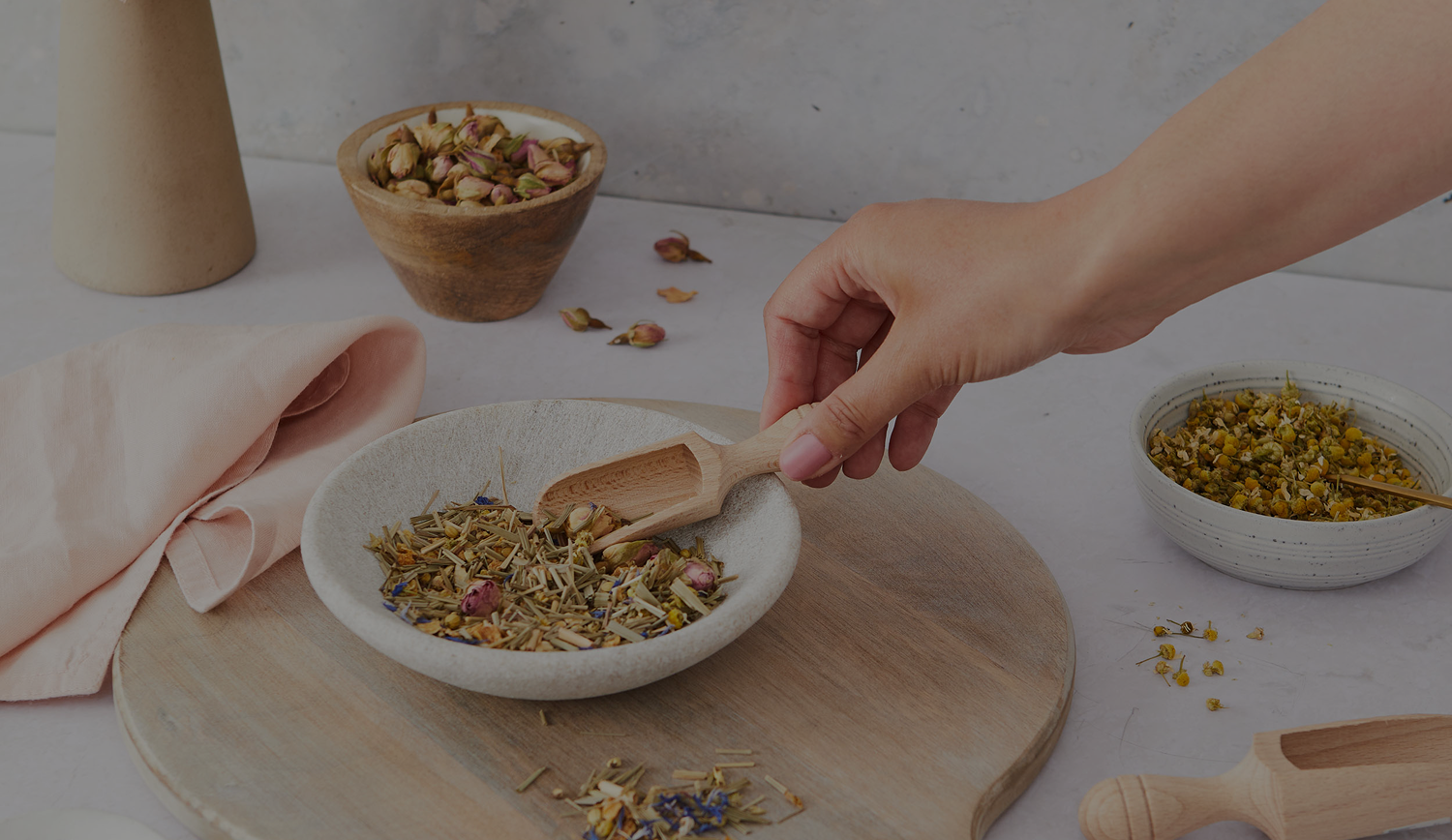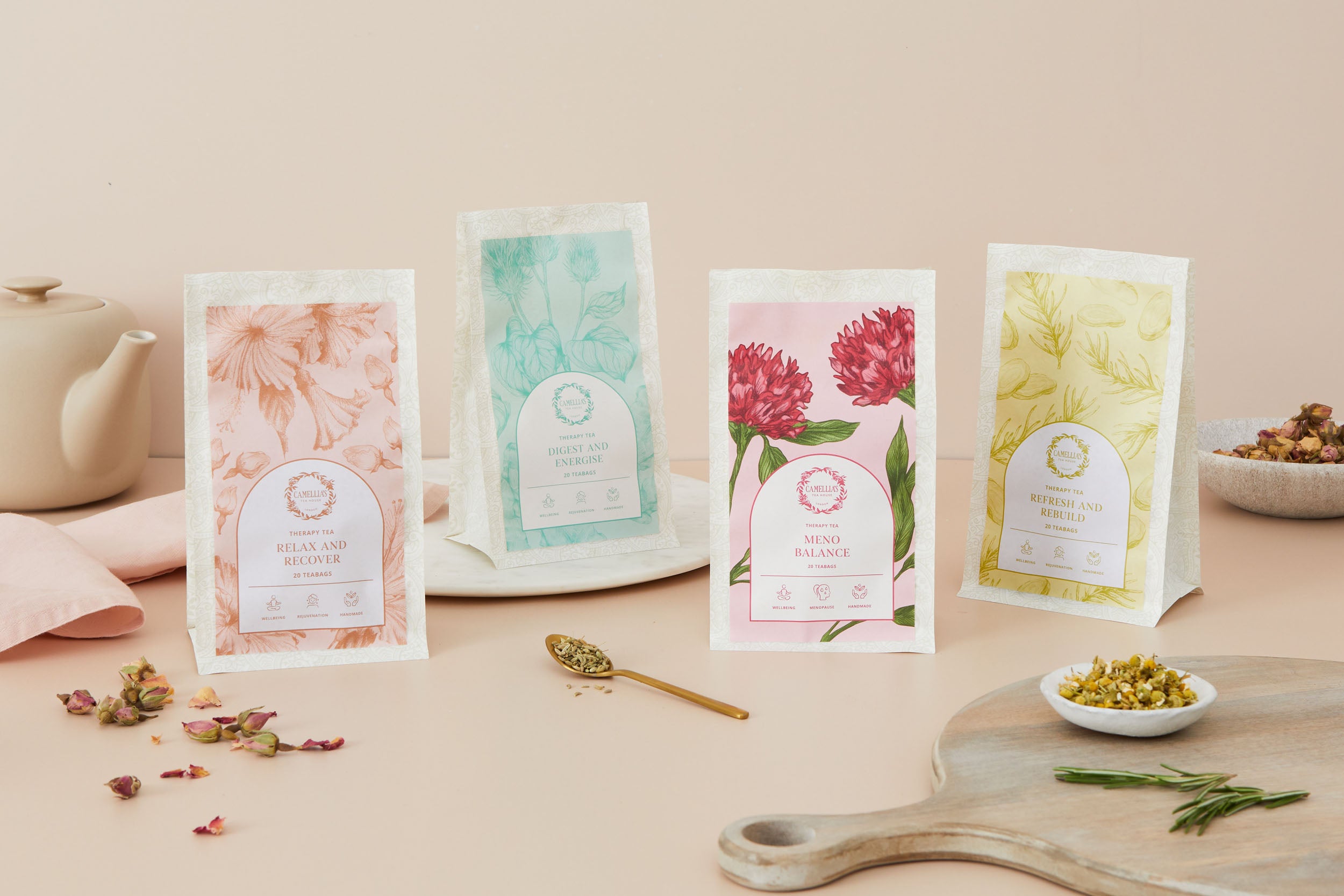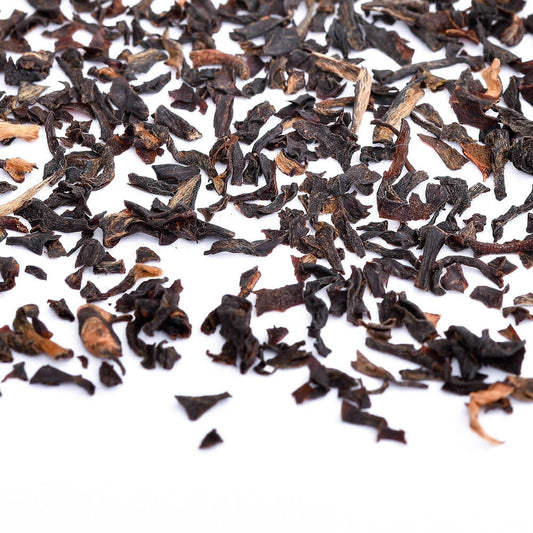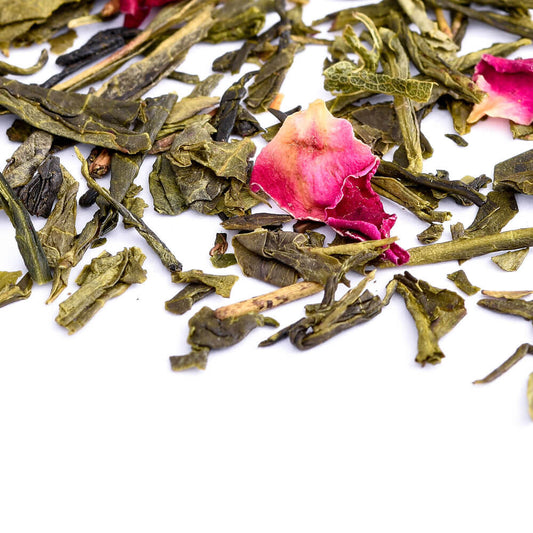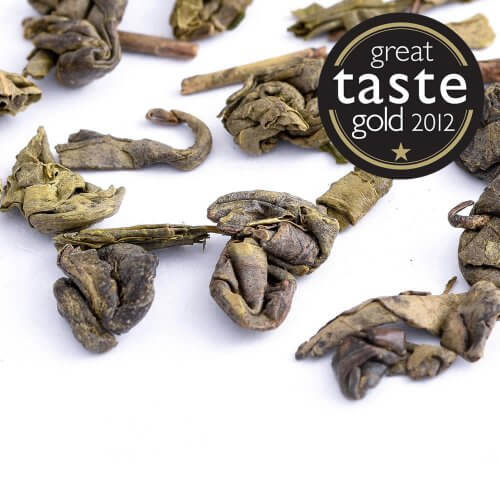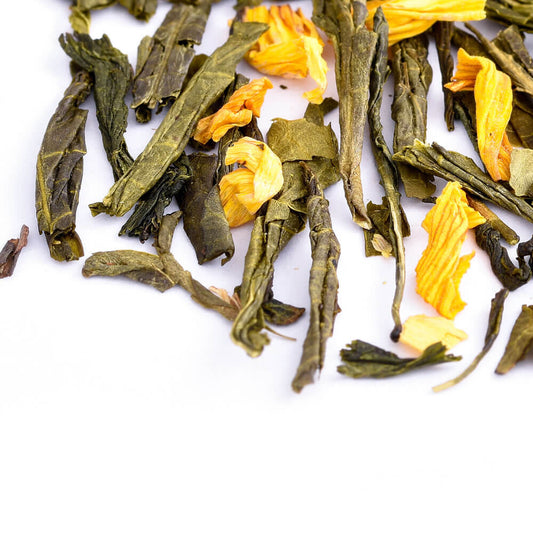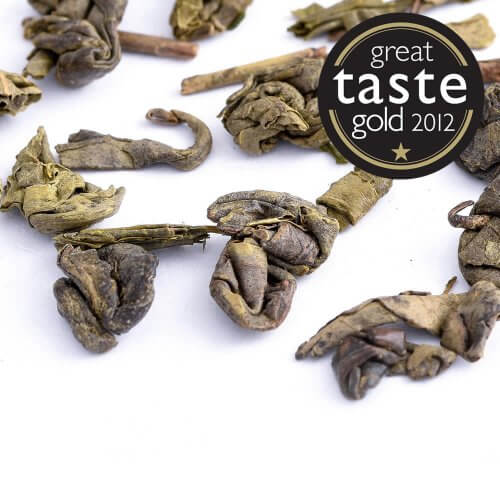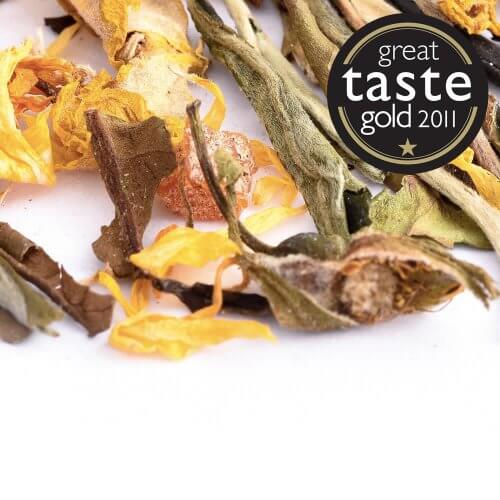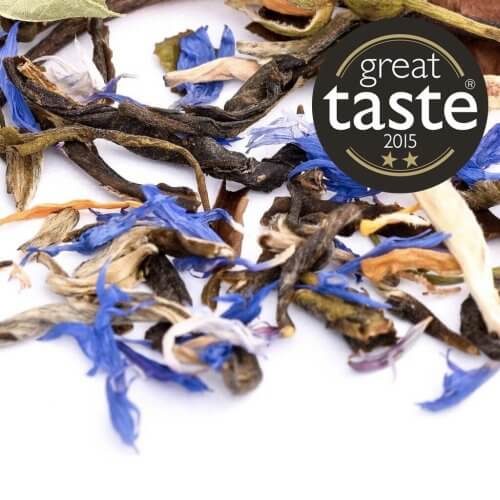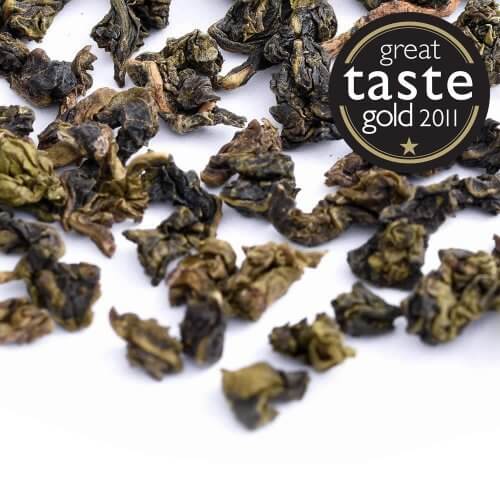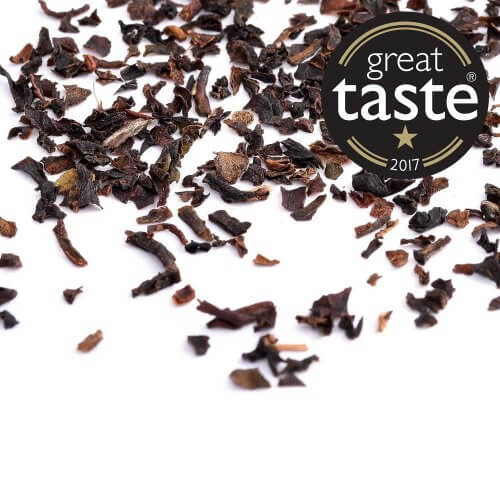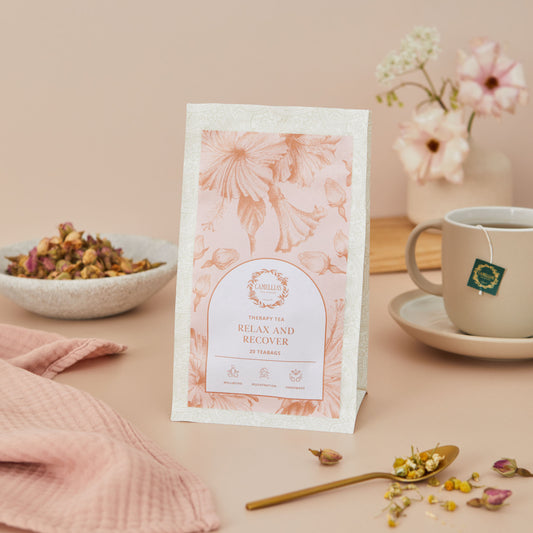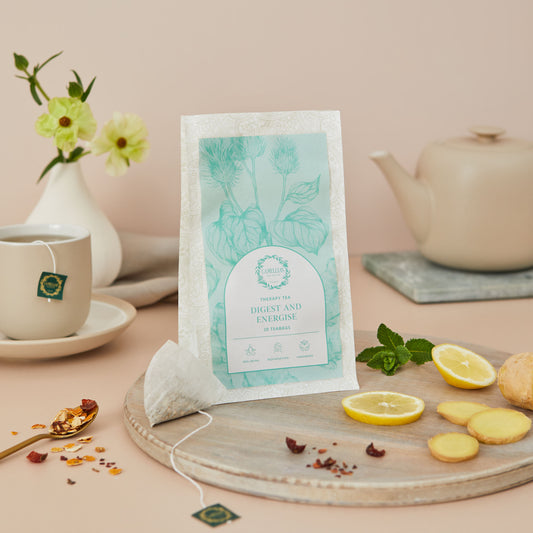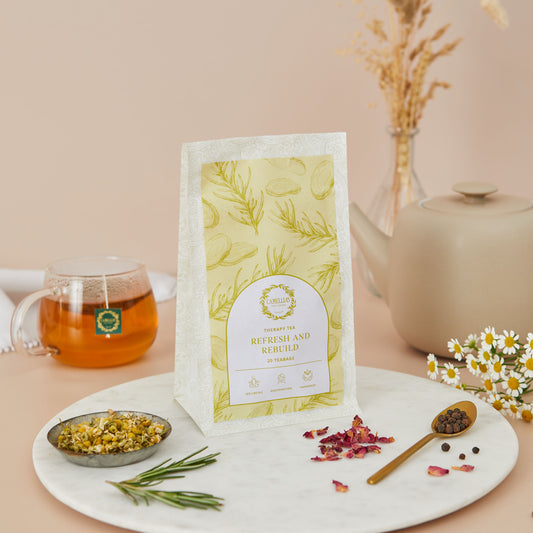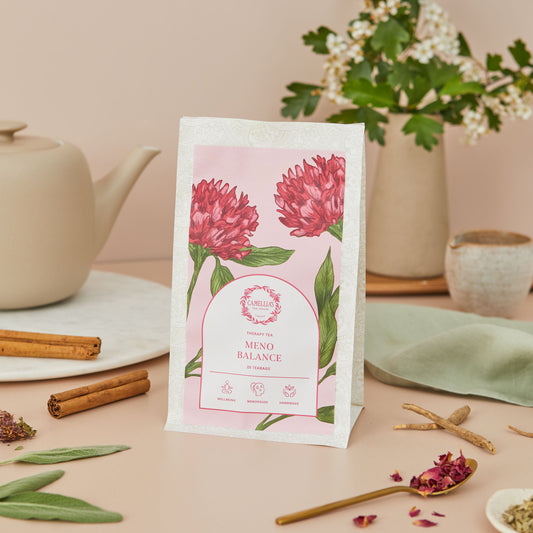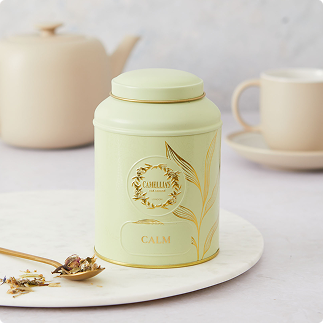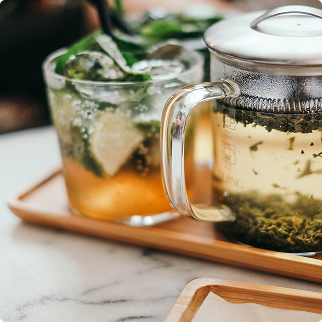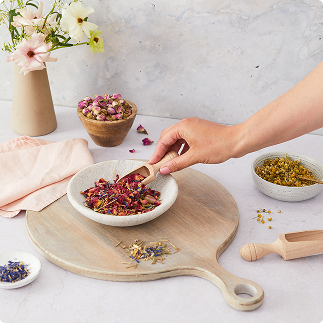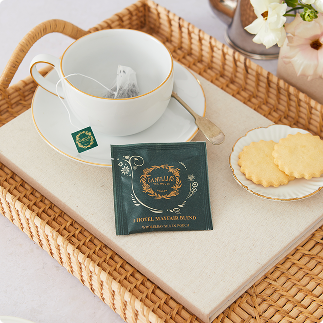ARTISAN TEAS HARVESTED FROM THE FINEST GARDENS
Christmas Tea
ABOUT THIS TEA
Festive and luxurious, this handmade blend is a symphony of luxurious black tea with warming spices and sun-dried winter fruits. Indulgent chocolate and vanilla notes linger over a creamy, nutty infusion, underpinned by exotic spices and orange notes.
TASTE
Medium bodied black tea with aromatic spices and sweet, fruity notes highlights.
AROMA
A wonderfully rich and inviting bouquet of warm spices, sweet orange, and soft chocolate notes. Hints of vanilla and winter fruits rise gently, creating a cosy, nostalgic festive scent.
INFUSION
A deep amber-bronze liquor with a warm, golden glow.
Assam Bargang GFBOP
ABOUT THIS TEA
Originating from a tea garden on the north bank of the Brahmaputra River in Assam, this wonderfully robust tea is the ideal breakfast companion.
TASTE
Full bodied and robust with creamy texture and malty undertones.
AROMA
A full aroma interspersed with sweet, raisin like and tangy notes.
INFUSION
Dark golden brown with some viscosity and perfect with milk.
Ceylon Kenilworth OP1
ABOUT THIS TEA
Sourced from the Sri Lankan Kenilworth estate that was established in 1947 and named after Kenilworth castle in England.
TASTE
Deliciously malty with mildly earthy and spicy profile.
AROMA
Subtle perfumed notes with a hint of wood and honey.
INFUSION
Dark copper coloured infusion that takes milk well.
Darjeeling Goomtee 2nd Flush GFTOP
ABOUT THIS TEA
Goomtee Estate, in the foothills of the Himalayas, is ranked among the top gardens in Darjeeling. Luscious whole leaves with hues ranging from oaky-brown to light green produce a soft liquor with distinctive muscatel characteristics.
TASTE
Light, refreshing and crisp with mellow muscatel characteristics.
AROMA
Gentle citrus notes with hints of grapes.
INFUSION
A bright and well developed amber coloured infusion.
Cherry Blossom
ABOUT THIS TEA
Inspired by the Japanese cherry blossom festival of Hanami, we have blended Japanese green tea with peony flowers, rose petals and cherries to produce a delicious tea with distinctive cherry undertones.
TASTE
Light green and subtlety sweet undertones with lush cherry flavour.
AROMA
Lush notes of marzipan and cherries.
INFUSION
Warm yellow cup.
Moroccan Mint - Teabags
ABOUT THIS TEA
Our Gold Taste award winning version of the Middle Eastern classic – gunpowder green tea blended with the finest mint leaves.
TASTE
Full bodied earthy green tea layered with refreshing sweet mint and a touch of smoke.
AROMA
Refreshing aromas of mint interlaced with a hint of spicy smokiness.
INFUSION
A dark amber coloured infusion.
Peachy
ABOUT THIS TEA
The flavour of the summer with lush peaches and delicate green tea. Premium green tea is infused with peach essential oils and sunflower blossoms creating a delicious tea bursting with peaches. Delicious served iced or hot.
TASTE
An exotic combination of refreshing green tea harmoniously blended with natural ripe peach flavour for a delicately sweet juicy taste.
AROMA
An inviting sweet and fruity aroma with a hint of spice.
INFUSION
A bright yellow green infusion.
Moroccan Mint
ABOUT THIS TEA
Our Gold Taste award winning version of the Middle Eastern classic – gunpowder green tea blended with the finest mint leaves.
TASTE
Full bodied earthy green tea layered with refreshing sweet mint and a touch of smoke.
AROMA
Refreshing aromas of mint interlaced with a hint of spicy smokiness.
INFUSION
A dark amber coloured infusion.
Camellia's White Apricot
ABOUT THIS TEA
Our spectacular Gold Taste Award winning blend is a marriage of fine white tea leaves with real apricots and marigold flowers. Deeply refreshing with honey like sweetness and flowery undertones. Best served hot or iced.
Allergy warning - contains sulphur dioxide.
TASTE
A delectable combination of White Peony leaves and succulent ripe apricots. The smooth fruity mouthfeel is truly a taste of heaven!
AROMA
The highly fragrant infusion is reminiscent of an orchard of fresh juicy apricots on a warm summer's day
INFUSION
A golden colour to the cup.
Camellia's White Jasmine and Apricot
ABOUT THIS TEA
Uplifting and indulgent, this gentle blend of white and green tea is layered with succulent apricots, the finest jasmine and warming ginger. Delicious served either warm or iced.
Allergy warning - contains sulphur dioxide.
TASTE
A delicious and refreshing balance of sweet apricots and jasmine with gentle ginger spiciness that bind the flavours together
AROMA
Fragrant dried apricots marry with sweet Jasmine to create a wonderfully enticing tea
INFUSION
A golden and shiny infusion
Milky Oolong
ABOUT THIS TEA
This Great Taste Award winner originates from Taiwan’s Nantou region. It is creamy and sweet and with a butter-rich softness comparable to caramel.
TASTE
Deliciously light butter rich flavour and delicate sweetness with a creamy texture with lactose and vanilla notes.
AROMA
Milky and buttery aroma with gentle vanilla notes.
INFUSION
Vibrant yellow-green infusion.
Signature English Breakfast
ABOUT THIS TEA
Our Signature English Breakfast tea is a blend of the finest high altitude grown broken orange pekoe teas from Sri Lanka, Darjeeling, Assam and Kenya. A full-bodied breakfast tea with delicate flowery and spicy undertones. Best enjoyed with a splash of milk.
TASTE
Robust body with elegant tannins and soft in the mouth, hints of golden syrup wrapped around subtle flowery undertones.
AROMA
Delightfully aromatic with a scattering of pepper and flowery notes.
INFUSION
Deep walnut with golden hue around the edge.
